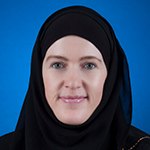Contract cheating and academic integrity in higher education: What can universities, quality assurance agencies and governments do to understand, prevent and respond to the challenge?

Dr. Myra E. J. B. Williamson
Associate Professor of Law International law – teaching & learning
Abstract
“Cheating in any form harms universities, the university system, external parties such as employers who rely on the integrity of qualifications—and students themselves, who can face blackmail and extortion threats from those they pay for ‘services’.”
There is a global challenge to higher education posed by “contract cheating”. “Contract cheating” occurs when a student contracts a third party to create an assignment for them, and then the student submits it as their own work. This particularly insidious form of cheating has been exacerbated by the commodification of higher education and the increasingly popular “sharing economy”.
Contract cheating not only threatens the academic integrity of the individual student’s grades and their degree; it also raises suspicion about all the degrees awarded by an institution. Globally, universities have been struggling to combat contract cheating. This paper defines and describes the problem and then summarizes the findings of recent research and offers solutions.
New Zealand was one of the first countries to criminalize contract cheating. A legal approach is a solution which every country needs to consider because it directly targets the commercial entities creating the product. A pedagogical approach requires universities to be proactive and there are many things which universities can do to reduce and manage the problem. A quality assurance approach can involve national quality assurance agencies working with government departments and tertiary education providers to conduct research and provide guidance to all universities.
This paper draws on recent research produced by the accreditation agencies, individual researchers, and university organizations. It refers to research in selected countries—especially New Zealand, Australia and the UK—to counteract contract cheating. The solutions will be of interest to all universities, quality assurance agencies and governments because contract cheating is a global problem which challenges the academic integrity of every higher education institution.
Keywords: Student cheating, Outsourcing of assessment, Academic integrity, Essay mills, Teaching and learning practices, Curricula design.
CV / Resume
Dr. Myra E. J. B. Williamson
Associate Professor of Law International law, teaching & learning
Dr Myra Williamson holds a BA (Politics) and an LLB Hons (First Class) from Otago University, an LLM Hons (First Class) and a PhD from Waikato University in New Zealand. She is also a Barrister and Solicitor of the High Court of New Zealand. Her LLB Honours thesis was on insurance law and her PhD thesis was on the use of force in international law from both historical and modern perspectives. Her current research interests include international & comparative law, social justice, gender and development, quality assurance, accreditation and pedagogy.
Dr Williamson’s publications include a monograph, “Terrorism, War and International Law: The Legality of the Use of Force Against Afghanistan in 2001” (Ashgate, 2009); two book chapters in Ruys, Corten and Hofer (eds.) “The Use of Force in International Law: A Case-Based Approach” (Oxford University Press, 2018) as well as a chapter on comparative law in Farran and Gallen et al (eds.) “The Diffusion of Law: The Movement of Laws and Norms Around the World” (Ashgate, 2015). In relation to social and gender justice, she recently published a journal article on Kuwait’s nationality law, “The Relationship Between Development and Gender Equality: in search of new perspectives on sustainable development through the lens of the Kuwait Nationality Law (Journal of Law, Social Justice and Global Development, Special Issue 21:2018, 58-73). Regarding pedagogy, she published an article in 2017 on global education and assessment in “The Law Teacher” (see The Law Teacher (2017) 51:3 287-311).
Dr Williamson has practiced law (in New Zealand) and has taught law in New Zealand, Saudi Arabia and Kuwait. She was an Associate Professor of Law at KILAW from 2012-2016. Dr Williamson is currently undertaking the Post-Graduate Certificate in Tertiary Teaching and Learning at the University of Waikato and is enjoying its focus on teaching and learning practices. She looks forward to returning to the Middle East in 2019 to take up a new position.
